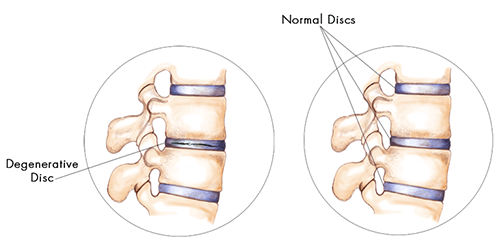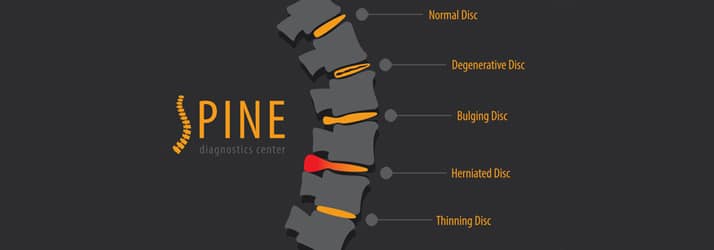Degenerative disk disease (DDD) is a condition that causes severe and prolonged pain in the lower back and often results in disability.
The pain is usually caused due to inflammation of the disc, which can cause weakness in the corresponding muscles.
Although chiropractors may treat some of these issues, they cannot correct degenerative disc disease.
Degenerative disc disease does not have to be treated by a chiropractor. Other alternatives are available to people who suffer from this condition.
This article outlines what degenerative disc disease is and how a chiropractor can help you if you suffer from this condition.
While some people experience only symptom relief from degenerative disc disease treatment, others find pain relief from treatment with complementary medicines such as chiropractic care.
Table of Contents
What Causes Degenerative Disc Disease?

Degenerative disc disease (DDD) is a disorder that can affect the structural health of your spine.
Discs begin to wear out and break down, leading to pain and damage to other surrounding structures.
The most common cause of DDD is age or injury, but other issues may also contribute.
It affects over 30% of Americans between the ages of 30 and 65. The severity of this problem depends on the location of your disc problem.
However, many people see degenerative disc disease as inevitable when they age; it’s a natural process that everyone has to deal with eventually.
The accumulation of water leaks from the sides of discs caused by pressure applied by others can cause a pyramidal (spherical) collapse of the spinal cord between vertebrae. The condition is not only excruciating but also can be debilitating.
What Are The Symptoms Of Degenerative Disc Disease?
Degenerative disk disease is a collection of various symptoms which develop over time due to pressure and rubbing on the lower spine.
As the disc presses on the nerves, it leads to pain in the lower back, neck, and hips and gastrointestinal problems.
Degenerative disc disease can be treated with surgery by removing the degenerated tissue of a disc.
It can cause rotating, grinding, and pulling pain in your lower back and the muscles running up and down your back.
t’s no surprise that those who suffer from degenerative disc disease may have chronic headaches or neck pain or find it difficult to stand up straight or move around quickly.
Degenerative disc disease can cause additional spinal nerve damage and weakness in the corresponding body area. In addition, degenerative disc disease can cause pain in the back, neck, and shoulder areas.
Decreasing your discs can cause leg or foot pain and back pain. You may also see new or worsened bone spurs, which block nerves and cause pain.
How Can Chiropractic Care Help With Degenerative Disc Disease?

Degenerative disc disease (DDD) is a medical condition that causes stiffness and loss of range of motion in the spine.
Many people with DDD suffer from chronic back pain, leading to other health conditions such as depression, anxiety, and impaired quality of life.
Chiropractic care has several advantages over other treatments, including pain relief and improved circulation to the spine.
Chiropractic care can help promote the natural healing process of your joints, muscles, and nervous system.
As the spine heals, the size of the joint surfaces where your discs are located will increase.
In addition to reducing pain, a more considerable amount of cushioning means these joints won’t get damaged as often by pressure.
Degenerative disc disease is a relatively common condition that affects more than 50 million Americans.
The condition is usually listed among the most painful conditions to treat. The spinal discs hold onto the nerve tissue in your spine and protect it from injuries, but as you age, there’s a high risk of them becoming damaged.
Instead of having one job like any other body part, your disc carries out different tasks for your spine daily. When this leads to degeneration which causes inflammation, you may begin to feel pain.
Chiropractic Care VS. Surgery for Degenerative Disc Disease
Although many chiropractic care options are available, surgery is often the most effective treatment for degenerative disc disease.
While some people may be comfortable practicing physical therapy or both of these treatments, others prefer surgery over other procedures.
While it’s easy to assume that most people with back pain have degenerative disc disease, this wasn’t true 40 years ago.
The discovery of anti-inflammatory drugs made surgery a viable solution for those suffering from severe back pain without any treatment options.
And today, after extensive research and testing, it has become clear that surgery is not always better than chiropractic care.
Chiropractic is a holistic health care approach focusing on the relationship between body and mind.
While chiropractors do not operate on patients, they adjust or manipulate specific body areas to relieve pain and promote healing.
The vertebrae, discs, ligaments, and cartilage make up the spine’s bones. The vertebrae help to support the stressed muscles in your back (your spinal cord), allowing for better movement of your arms and legs.
Chiropractic Care VS. Medication for Degenerative Disc Disease

Chiropractic care and medications are often recommended as a treatment option for degenerative disc disease, which is the most common cause of lower back pain in the United States.
Chiropractic treatment can help relieve pain and improve mobility. In contrast, medication treatments may be more effective in relieving symptoms, but they also come with side effects such as nausea, drowsiness, and dry mouth.
The preferred treatment for degenerative disc disease is chiropractic care. However, not everyone can afford regular visits to a chiropractor.
Chiropractic patients who suffer from this condition can find relief with medication as it reduces symptoms and improves the quality of life.
They have pain and stiffness in their lower back after sitting at their desk for long periods.
This is a condition called degenerative disc disease (DDD). DDD can lead to severe pain after flexion and extension of your spine. It can also cause numbness and weakness in your legs due to nerve injury.
The disc between each vertebra can become damaged, causing pain and possibly impaired function.
The vertebra below the affected disc may also be harmed by degeneration. Degeneration can cause spinal arthritis and inflammation of the joints associated with the spine.
